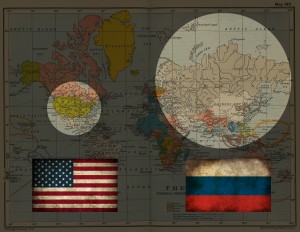The jailed member of Pussy Riot, Nadezhda Tolokonnikova was moved to a Siberian prison during an almost month-long period while her family was unaware of her whereabouts. Russian prison authorities moved Tolokonnikova after a highly publicized hunger strike over a distance of several thousand miles without telling her family where she was being moved. Movement of prisoners often takes this long because the trains that transport the prisoners stop many times in different prisons throughout Russia. Russian authorities also are not legally required to say where a prisoner is being moved until after a transfer has taken place.
Today it was confirmed that after 24 days without contact with her family, Tolokonnikova was moved to a prison in the region where she once lived with her mother, Krasnoyarsk. Her husband initially believed Tolokonnikova was being moved to the town of Nizhny Ingash, which is 185 miles away from Krasnoyarsk. Tolokonnikova is currently in the hospital for convicts in Krasnoyarsk instead of the prison, being treated in a tuberculosis hospital. While she does not have tuberculosis, she is being treated for the hunger strike complications.
Is it ethical to move prisoners without notifying their families? What would the American reaction be if something like this happened to a prisoner in the United States?
http://www.google.com/hostednews/afp/article/ALeqM5gciKYJkfXvRRedTJWDS9iejQ0eyw?docId=514fe0ae-a58a-4779-ae62-7d5be9df86c5



